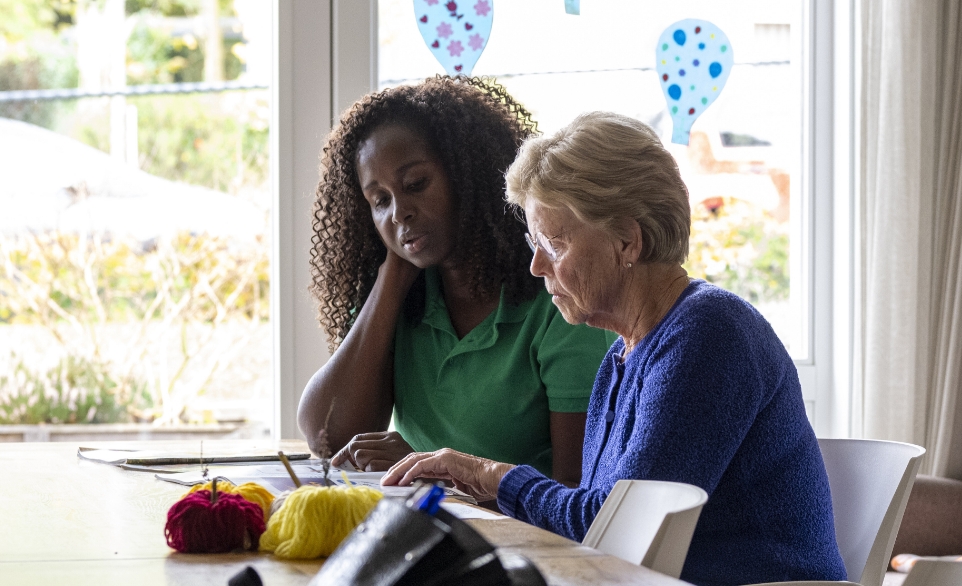
In care, your frontline is your business.
They’re the ones walking into clients’ homes.
Building trust with families.
Keeping vulnerable people safe, well, and connected.
So, if your frontline team is tired, unsupported, or underperforming — everything suffers.
But when your care team is strong, energised, and aligned? That’s when the magic happens.
At SisterStaff, we’ve helped hundreds of care providers build high-performing teams — and we’ve seen what works. Here are the frontline management principles every care leader should master.
-
Hire for Values, Not Just Experience
A high-performing team doesn’t come from a perfect CV. It comes from carers who:
- Show kindness on the hardest days
- Work as a team
- Want to get better
- Take pride in doing the right thing
Yes, experience matters — but attitude matters more.
Interview for values. Train for skills.
Pro Tip: Use scenario-based questions that reveal how someone thinks, reacts, and cares. For example:
“What would you do if you arrived at a client’s home and something didn’t feel right?”
-
Get the Induction Right
Your care team’s journey starts on day one — and so should your standards.
A rushed, confusing induction is the fastest route to:
- Poor performance
- Early resignations
- Risky practice
A confident start = better care, better teamwork, better results.
Build in:
- Clear job expectations
- Shadowing with role models
- Practical training
- Warm welcomes and introductions
Think of induction not as a checklist, but as your first investment in retention.
-
Define What “Good” Looks Like
You can’t manage what you haven’t made clear.
Want carers to show initiative? Model it.
Want better timekeeping? Be consistent.
Want fewer callouts? Track and feed back.
Set the tone. Define the standards. Praise what you want repeated.
High-performing teams are built on clarity — not guesswork.
-
Don’t Just Supervise — Coach
Great managers don’t just point out mistakes.
They ask, “What support do you need to do this better next time?”
Check-ins should feel like:
- Problem-solving, not telling off
- Partnership, not hierarchy
- Growth, not pressure
When carers feel like you’re in it with them, they give more — and stay longer.
-
Keep Communication Two-Way
High-performing teams aren’t just well-informed — they’re heard.
Ask for feedback often:
- “What’s working well right now?”
- “Where are you feeling stretched?”
- “What would make this job easier for you?”
And — most importantly — act on what you hear.
Carers who feel unheard won’t stay. Or worse — they’ll stay and disengage.
-
Celebrate the Good Stuff (Loudly)
Want people to do more of what’s working? Shine a light on it.
That could be:
- A “Carer of the Month” wall
- Friday shout-outs in the staff WhatsApp
- A handwritten card after a tough week
- Public recognition at team meetings
Celebrating effort builds confidence.
Celebrating excellence raises the bar.
Culture isn’t just built through policies — it’s built through praise.
-
Use Data Without Losing the Human Touch
Tracking performance matters — but it should feel fair, not fear-based.
Use tools like:
- Call logs
- Lateness reports
- Client feedback
- Spot checks
But balance it with context.
Ask why before you assume.
Check in before you call out.
A spreadsheet doesn’t tell the full story. Be curious, not just critical.
-
Support the Whole Person
Burnout is the enemy of performance.
If your carers are tired, unsupported, or struggling at home — it will show up in their work.
Support your team with:
- Mental health check-ins
- Flexible scheduling where possible
- Access to the Resilient Carers Playlist
- A culture where asking for help is welcomed, not punished
Happy, healthy carers = safer, better care.
-
Invest in Growth
High-performing teams are always learning.
Whether it’s:
- Leadership pathways
- Advanced care qualifications
- Upskilling workshops
- Shadowing roles or mentoring
Make development part of the deal.
Don’t wait until someone’s about to leave to show them they matter.
Growth keeps great carers engaged and committed.
-
Don’t Manage From a Desk
You can’t lead a frontline team from behind a laptop.
Be visible. Be present. Visit shifts. Say thank you. Ask how people are. Listen with your eyes.
Great leaders show up — especially when it’s hard.
The more your carers see you, the more likely they are to follow you.
Want More Like This?
Check out our YouTube Playlist:
Managing Frontline Care Teams on @BigSisterCare
Real tips. Real stories. Real support for real managers.
And don’t forget to visit our Resilient Carers Blog to keep your team strong, supported, and seen.
Final Word: You Don’t Need a Bigger Team — You Need a Stronger One
High performance isn’t about heroic effort — it’s about smart, steady, supported teams.
Download our brochure or book a call
With the right management, even the most stretched team can thrive.
Let SisterStaff help you build a frontline you can be proud of.













